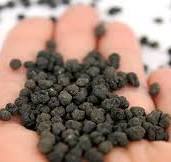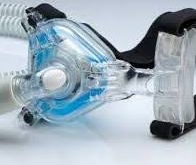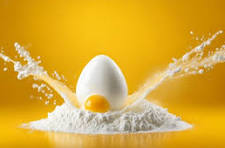In the industrial world, pickling operations play a key role in metal preparation by removing impurities like oxides, scales, and other contaminants from surfaces before further processing. This process involves exposure to aggressive acids and elevated temperatures, which present a unique set of challenges for the materials used. For pickling lines, selecting proper tubing is vital, as it can make or break the efficiency, safety, and lifespan of operations. Among available materials, Incoloy 925 tubes are distinguished for their outstanding durability and resistance, making them a preferred choice in demanding pickling environments. Here, we will discuss the critical role of Incoloy 925 tubes and how they contribute to enhancing safety, efficiency, and longevity in pickling applications.
Understanding the Demands of Pickling Operations
In pickling, strong acids like hydrochloric and sulfuric acids are essential to strip away impurities on metal surfaces. Such operations are found in a range of industries, including steel production, chemical processing, and various heavy manufacturing sectors. Given the harsh nature of pickling environments, materials must be selected for resilience to both acid corrosion and thermal degradation. Since the efficiency and safety of the pickling process directly relate to the durability of the equipment, including tubing, choosing a material like Incoloy 925 can be crucial to the operation’s success.
Why Incoloy 925 Tubes Are Ideal for Pickling Lines
1. Unmatched Corrosion Resistance
In pickling operations, corrosion is a constant challenge due to prolonged exposure to strong acids that are necessary for stripping metal surfaces of contaminants. Incoloy 925 tubes are specifically engineered to handle such aggressive environments. With a composition of nickel, iron, and chromium, Incoloy 925 offers impressive resistance to corrosion, both in acidic and oxidizing settings. This advanced alloy structure makes it highly durable in the face of continuous acid exposure, ensuring that the tubes will not corrode or deteriorate quickly.
The longevity provided by Incoloy 925 tubes means fewer replacements, which directly lowers operational costs and minimizes downtime—a major advantage for facilities aiming for high efficiency in production.
2. High-Temperature Stability
Temperature plays a significant role in pickling because higher temperatures often accelerate chemical reactions and improve cleaning efficiency. Incoloy 925 tubes maintain their mechanical properties and structural integrity even at elevated temperatures, setting them apart from other materials that may lose strength and stability in such conditions. While other alloys might weaken or deform under heat, Incoloy 925 remains reliable, making it ideal for the thermal demands of pickling processes.
The thermal stability of Incoloy 925 tubes ensures that they can endure prolonged high-temperature exposure without compromising safety or functionality. This resilience reduces the risk of equipment failure, a critical consideration in maintaining safe and continuous operations.
3. Exceptional Strength and Toughness
In addition to corrosion and heat resistance, Incoloy 925 is known for its strength and toughness. The alloy’s structure is exceptionally resilient, making it resistant to mechanical impacts and wear. This strength is especially beneficial in pickling environments, where equipment is frequently handled and subjected to potential impact from machinery or handling processes.
By using Incoloy 925 tubes, facilities gain reliable tubing that can withstand both environmental and physical stress, leading to efficient and uninterrupted operation. Its durability means that Incoloy 925 tubes can hold up under harsh conditions, making it a cost-effective and dependable solution for demanding pickling operations.
4. Reduced Maintenance Requirements
Incoloy 925 tubes not only withstand corrosion and high temperatures but also require minimal maintenance. The material’s resistance to scaling and degradation means operators do not need to constantly inspect, clean, or replace these tubes, which lowers maintenance costs and minimizes interruptions in pickling operations. Additionally, reduced maintenance demands mean fewer disruptions, supporting higher operational efficiency.
Reduced maintenance also enhances safety. Fewer inspections mean that workers are less exposed to harsh chemicals, contributing to a safer working environment.
5. Long-Term Cost Efficiency
While Incoloy 925 tubes may involve a higher initial investment, their exceptional durability, corrosion resistance, and stability provide significant cost savings over time. Alternative materials that do not hold up well in pickling environments require frequent replacements and repairs, driving up expenses. With Incoloy 925, these tubes last longer, maximizing investment value by reducing downtime and replacement needs.
Over time, the cost-effectiveness of Incoloy 925 tubes becomes apparent, as they reduce the frequency of interruptions, lower maintenance costs, and enhance the efficiency of operations.
6. Enhanced Safety Features
Safety is paramount in pickling, where operations frequently involve corrosive chemicals and high temperatures. Incoloy 925’s high resistance to acid attacks and elevated temperatures reduces the likelihood of equipment failures, leaks, and other hazards. Its reliability minimizes the risk of accidental exposure to dangerous chemicals, thus ensuring a safer working environment for personnel.
With a robust material like Incoloy 925, facilities can protect workers by reducing the chances of sudden equipment malfunctions that might expose them to harmful substances. This safety benefit is a significant advantage in industrial environments, where occupational hazards are a serious concern.
7. Versatile for Various Pickling Processes
Incoloy 925 tubes are highly versatile, making them suitable for different types of pickling processes across industries such as aerospace, automotive, and chemical manufacturing. The alloy can handle diverse acid concentrations and varying temperatures, which allows it to be used in multiple stages of pickling—from pre-cleaning to finishing. This versatility makes Incoloy 925 tubes suitable for facilities that may require flexibility in their pickling operations.
Key Advantages of Using Incoloy 925 Tubes in Pickling
To summarize, here are the core benefits of Incoloy 925 tubes in pickling operations:
Durability: Resistance to corrosion, scaling, and degradation ensures a longer lifespan, which reduces replacement costs.
Temperature Resistance: The ability to maintain stability and performance at high temperatures keeps operations safe and efficient.
Mechanical Strength: The alloy’s toughness protects against mechanical damage, which is common in pickling lines.
Minimal Maintenance: Lower maintenance demands result in reduced downtime, labor costs, and safety risks.
Cost Efficiency: Although initially expensive, the material’s longevity and durability yield significant savings over time.
Enhanced Safety: Reduced risk of leaks and breakdowns protects both the facility and its personnel from hazardous exposure.
Conclusion
For pickling operations that involve intense exposure to acids and high temperatures, selecting an appropriate tubing material is essential. Incoloy 925 tubes emerge as a top choice due to their unique combination of corrosion resistance, high-temperature stability, strength, and cost efficiency. By investing in Incoloy 925 tubes, industries can optimize their pickling operations, enhancing safety, efficiency, and productivity.
The robust features of Incoloy 925 provide not only operational benefits but also cost-saving advantages that can reduce the frequency of replacements and maintenance needs. For facilities aiming to maintain stringent industrial standards, Incoloy 925 tubes offer an effective solution for pickling lines, supporting the advancement of safer and more efficient processing environments.
For any industrial application that requires durability, heat resistance, and reliability, Incoloy 925 tubes are a sound investment, aligning with the demands of modern pickling operations.
 Daily Blogger News Stay updated with the latest trends and insights. Your reliable source for daily updates and information.
Daily Blogger News Stay updated with the latest trends and insights. Your reliable source for daily updates and information.







